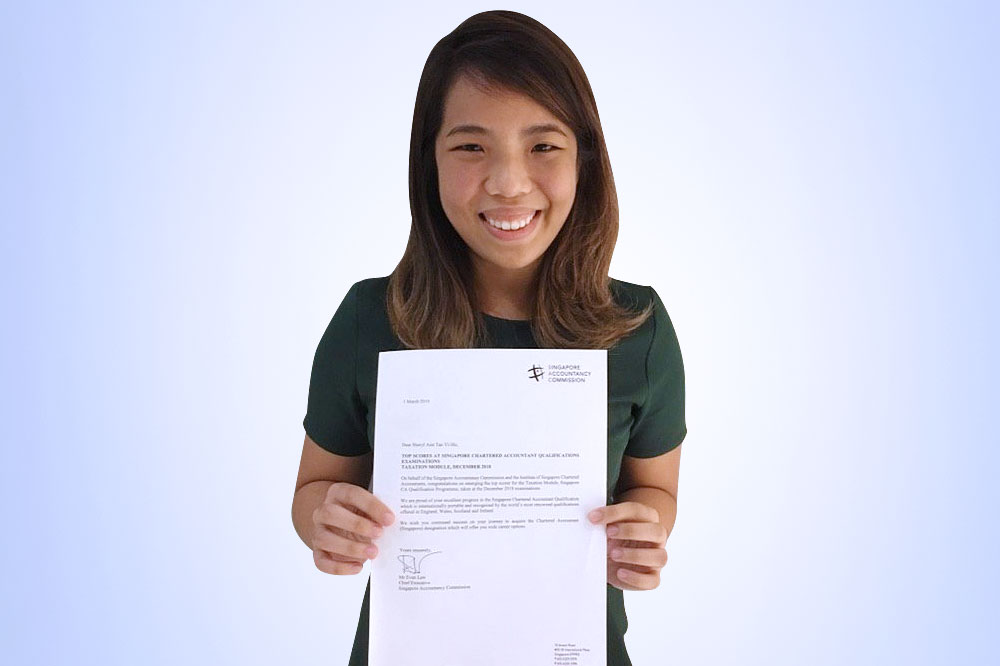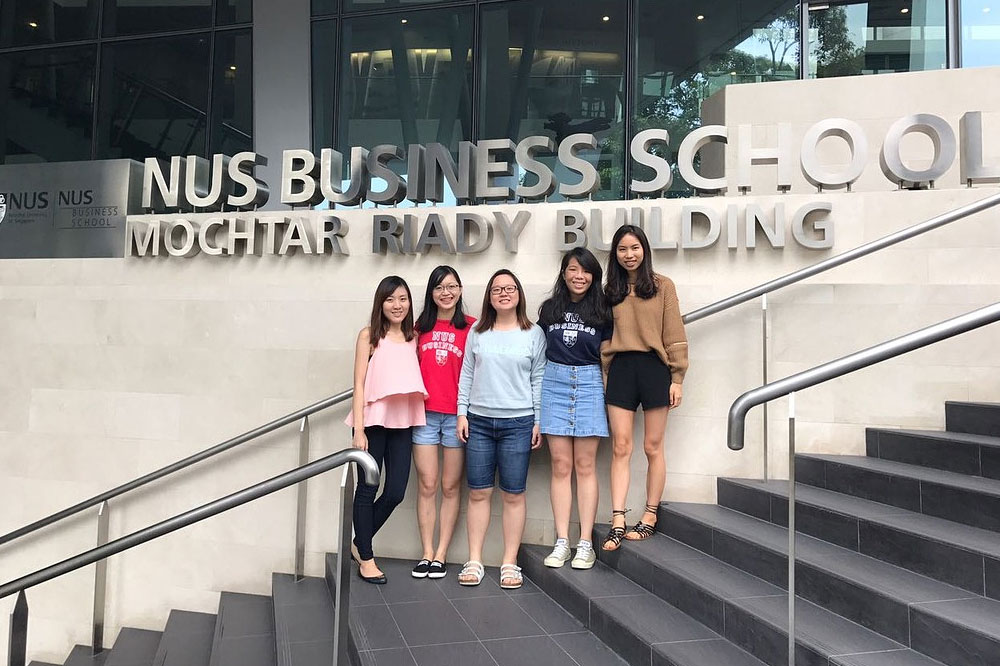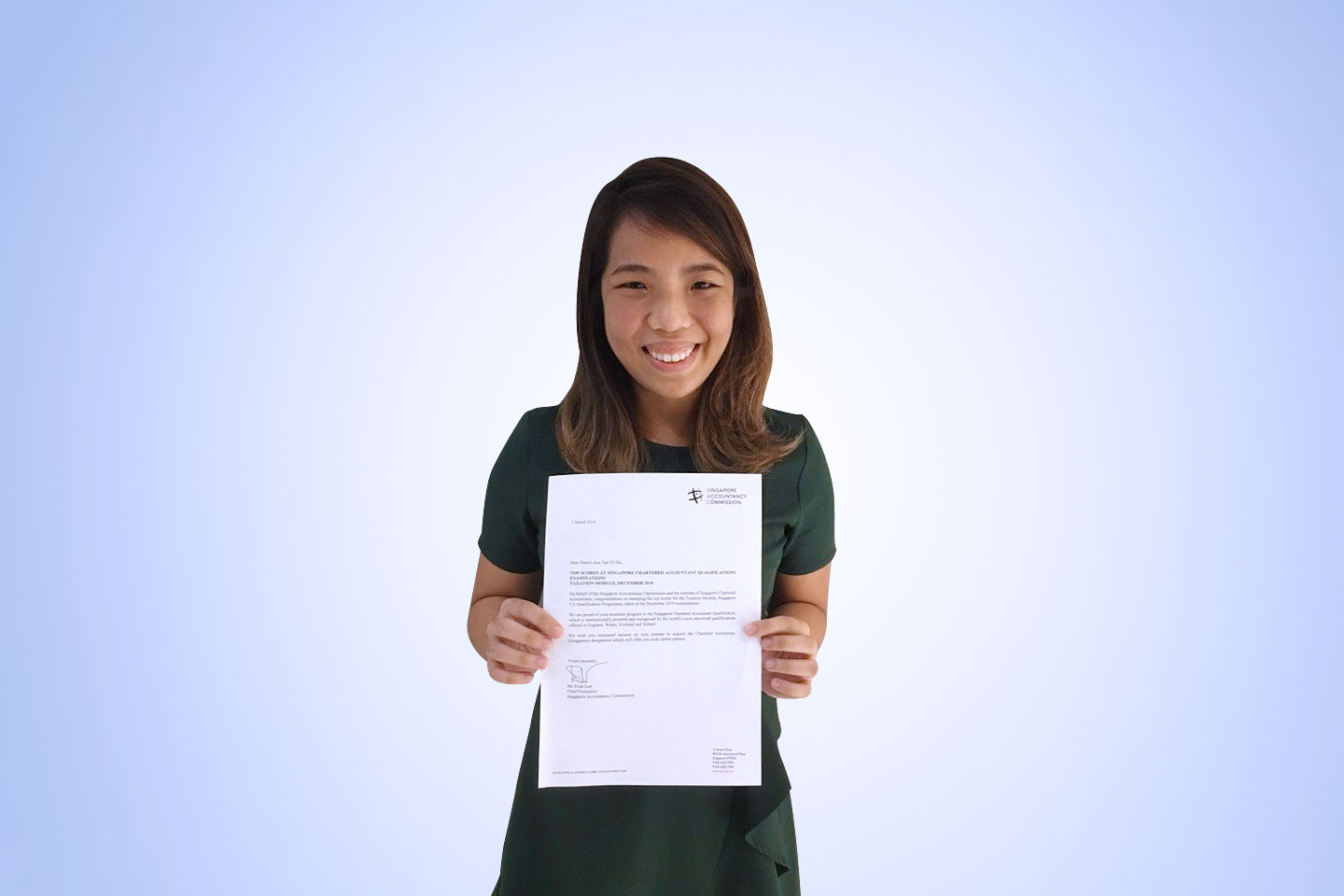Recognised worldwide, the title Chartered Accountant (CA) is a professional designation that gives individuals access to a wide range of senior roles within business and accounting fields. It would equip them for directorships, as well as CXO roles. Apart from senior management roles, CAs can also explore careers in auditing, financial accounting and risk management.
In Singapore, individuals become CAs by taking the Singapore CA Qualification (SCAQ), which is developed by the Singapore Accountancy Commission (SAC).
The path to becoming a CA is a long process where candidates have to balance studies with work. For instance, accounting graduates from local universities could spend up to three years studying to qualify as a CA.
However, this timeline can be shortened if accounting students meet SAC’s accreditation requirements, they are able to directly enter the professional stage of SCAQ.
Sheryl Ann Tan (Class of 2017), who was top scorer for the Taxation Module in the SCAQ December 2018 exam, believes becoming a CA is an important milestone in her professional growth.
Outside-In spoke to Sheryl, who shared her experiences and tips taking the SCAQ exam.

Sheryl with her letter of commendation for doing well in the taxation module. Well done!
Q: Why is taking the SCAQ exam important and how does it benefit your career journey?
The SCAQ is an internationally recognised qualification that is accompanied by a rigorous curriculum aimed at developing its candidates technically and holistically. The programme allows us to hone our technical skills and apply them at work.
Apart from widening my perspective, I believe that the programme will equip me with the necessary skills so that I can value-add to my company. I’m thankful that my employer Changi General Hospital has been very supportive of my journey to pursue the SCAQ.
Q: How do you prepare for the SCAQ?
Start early! It is important to give yourself enough time to study for the test. Take your breaks but be consistent with your revision. I also signed up for classes with Kaplan, one of the registered learning organisations.
NUS Business School helped build a strong academic foundation. The rigour of the BAC curriculum, coupled with knowledgeable professors with strong industry experience, made it easier to grasp concepts and apply them.

Sheryl (second from right) with her classmates after her last module in her final year.
Q: What are your top tips for those considering the SCAQ?
I’d highly encourage anyone who’s considering to take the SCAQ to go for it as it is an opportunity for you to grow professionally and develop your technical skills.
Time management will be key when undertaking the SCAQ as it is challenging to balance the demands of work and the programme, amongst other commitments.
Ready for SCAQ
At NUS Business School, students will find the various modules that help prepare them for the SCAQ and a fruitful career in accounting, according to Associate Professor Chng Chee Kiong, Vice Dean, Undergraduate Studies, and an accounting professor. He also teaches accounting at the School.
“We congratulate Sheryl for her great achievement in the SCAQ Taxation exam. I strongly recommend our Accountancy graduates who intend to pursue a career in the accountancy sector to complete the SCAQ exams in the three years after graduation,” he said.
“This is because what you learned in School will greatly help you to clear the exams and the knowledge will still be fresh in your mind. For example, the Taxation and Advanced Taxation modules prepare you for the SCAQ Taxation paper. Likewise, our Valuation and Corporate Governance & Risk Management modules prepare you for the SCAQ Business Value, Governance & Risk paper,” he added.
For more information on the NUS BBA programme, please visit http://bba.nus.edu.





